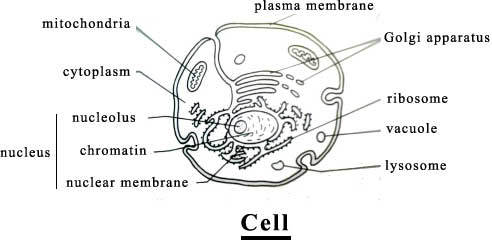Natureの編集者の文は、比較的読みやすいので、そこで使われているここのような「ニュース」関連の記事で用語に慣れておくとよいと思います。文章自体は難解ではないので、なれさえすれば用語は特に日本語に置き換えなくても意味はわかるし、むしろ日本語に置き換えないほうが分かりやすい、といえると思います。
以下、例よってほんの部分です。
[News Feature]
Epigenetics: Unfinished symphony
Jane Qiu(an editor at Nature Reviews Neuroscience)
epigenetics:
発生遺伝学【基医】
Epigenetics is the study of reversible heritable changes in gene function that occur without a change in the sequence of nuclear DNA. It is also the study of the processes involved in the unfolding development of an organism. In both cases, the object of study includes how gene regulatory information that is not expressed in DNA sequences is transmitted from one generation (of cells or organisms) to the next - that is (from the Greek prefix), 'in addition to' the genetic information encoded in the DNA.[from Wikipedia]
<epigenesis 生物の発生の過程で,最初は未分化な細胞から,種々の特徴や機能をもつ組織や器官が新たに形成されてくるという考え方
neuroscience:(n)神経科学【基医】
To correctly 'play' the DNA score in our genome, cells must read another notation that overlays it ? the epigenetic code. A global effort to decode it is now in the making, reports Jane Qiu.
上記のepigeneticsの説明
'reversible heritable changes in gene function'にあるように、その結果として書き込まれた'another notation that overlays it ? the epigenetic code'を読むことが求められる、という主張。
Manel Esteller's phone did not stop ringing for weeks. It was summer 2005, and he and his team at the Spanish National Cancer Centre in Madrid had just published a study comparing the activity of DNA in identical twins. The anxious callers were invariably twins whose sibling had developed a serious disease such as cancer or diabetes. Could the study help predict whether they too would succumb, they asked. Did the identical DNA sequence they shared with their afflicted twin mean they had the same genetic predisposition to illness?
このような"identical twins"の危惧に対して、identical DNA sequenceをepigeneticsの観点から調べることによって、より性格に読み取ることができる、というのが以下の記述からわかる。
invariably:
例外なくきまって
afflict:
(病気などで精神的・肉体的に)苦しむ,悩む
predisposition:
素因;素質;疾病素質;体質【基医】
[中略]
以下の部分が上記の記述を分かりやすく説明している。
The study by Esteller and his team showed that the missing link between nature and nurture could lie in a phenomenon known as epigenetics: a cryptic chemical and physical code written over our genome's DNA sequence. The term 'epigenetics' was first coined in the 1940s by British embryologist and geneticist Conrad Waddington, to describe "the interactions of genes with their environment, which bring the phenotype into being". The term now refers to the extra layers of instructions that influence gene activity without altering the DNA sequence.
つまり、identical DNA sequenceは変わらなくても、後天的にlayers of instructionsが加えられる、としている。以下、後天的あるいは環境な影響は年齢とともに違いが増してくる旨の記述が続く。
nature and nurture:
生れと育ち,素質と環境
cryptic:
隠(さ)れた,人目につかない
coin:
(新語などを)創る
interaction:
相互作用,言葉のやりとり,
bring ... into being
〈物〉を生み出す,生じさせる.
phenotype:
表現型《遺伝子型と環境の相互作用で生じる生物の体質》
